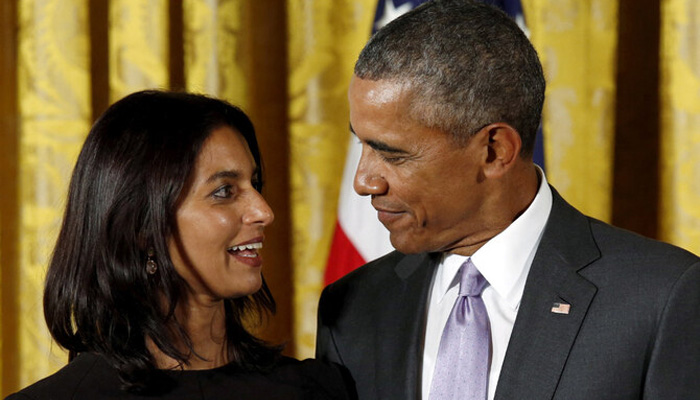Pulitzer winner Jhumpa Lahiri declines award over New York museum’s kaffiyeh ban
Pulitzer Prize winning author Jhumpa Lahiri declined to accept an award from New York City’s Noguchi Museum after it fired three employees for wearing kaffiyeh head scarves, an emblem of Palestinian solidarity, following an updated dress code.
“Jhumpa Lahiri has chosen to withdraw her acceptance of the 2024 Isamu Noguchi Award in response to our updated dress code policy,” the museum said in a statement on Wednesday.
“We respect her perspective and understand that this policy may or may not align with everyone’s views.” Lahiri received the Pulitzer Prize in 2000 for her book “Interpreter of Maladies.”
The New York Times first reported the news.
Across the world, in protesters demanding an end to Israel’s war in Gaza have worn the black-and-white kafiyeh head scarf, a symbol of Palestinian self-determination.
Anti apartheid South African leader Nelson Mandela was also seen wearing the scarf on many occasions.
Israel’s supporters, on the other hand, say it signals backing extremism.
In November, three students of Palestinian descent in Vermont were shot in an attack. Two were wearing the keffiyeh.
Israel’s ongoing assault on Gaza has killed tens of thousands and displaced nearly everyone there. It followed a deadly attack by Palestinian Hamas militants on Israel on Oct. 7.
Last month, the art museum — founded by Japanese American sculptor Isamu Noguchi — announced a policy prohibiting employees from wearing anything that expressed “political messages, slogans or symbols.” Three employees were sacked.
Other people in the United States have also lost their jobs due to their stance on the Israel-Gaza war.
A New York City hospital fired a Palestinian American nurse in May after she called Israel’s actions in Gaza a “genocide” during an acceptance speech for an award. Israel denies genocide charges brought by South Africa at the World Court.

